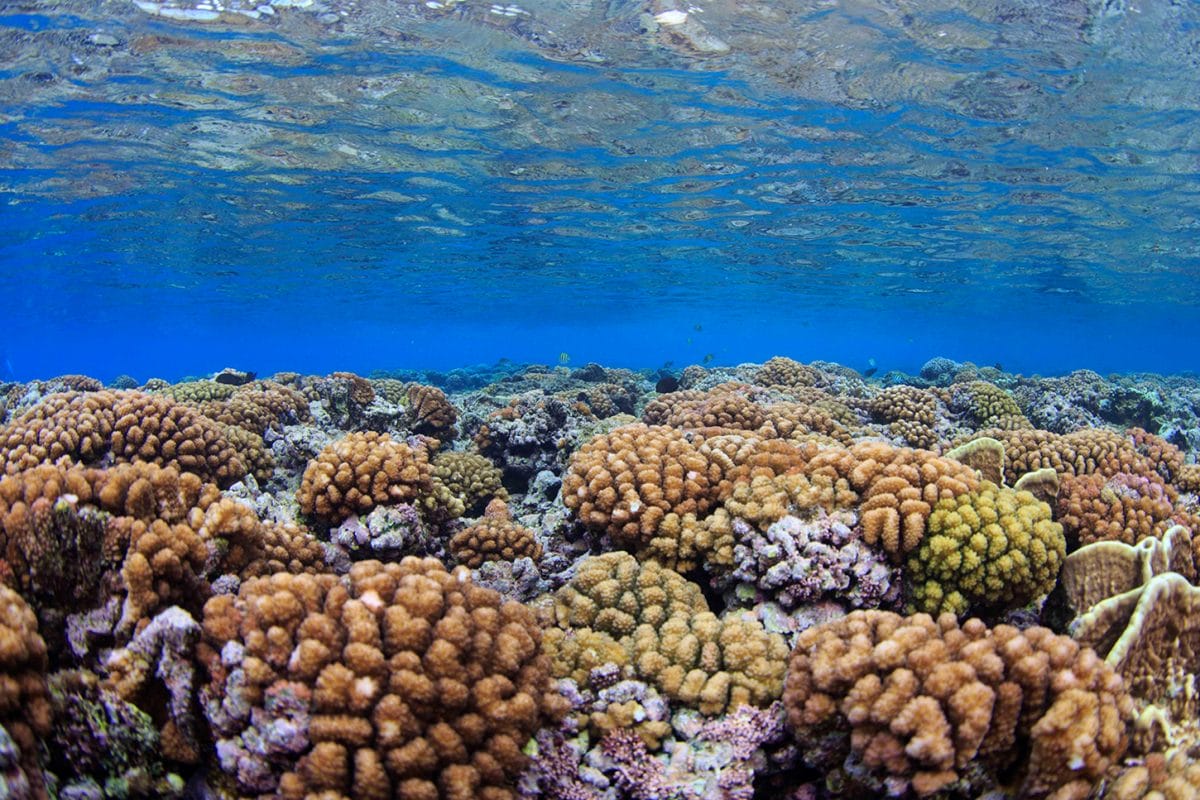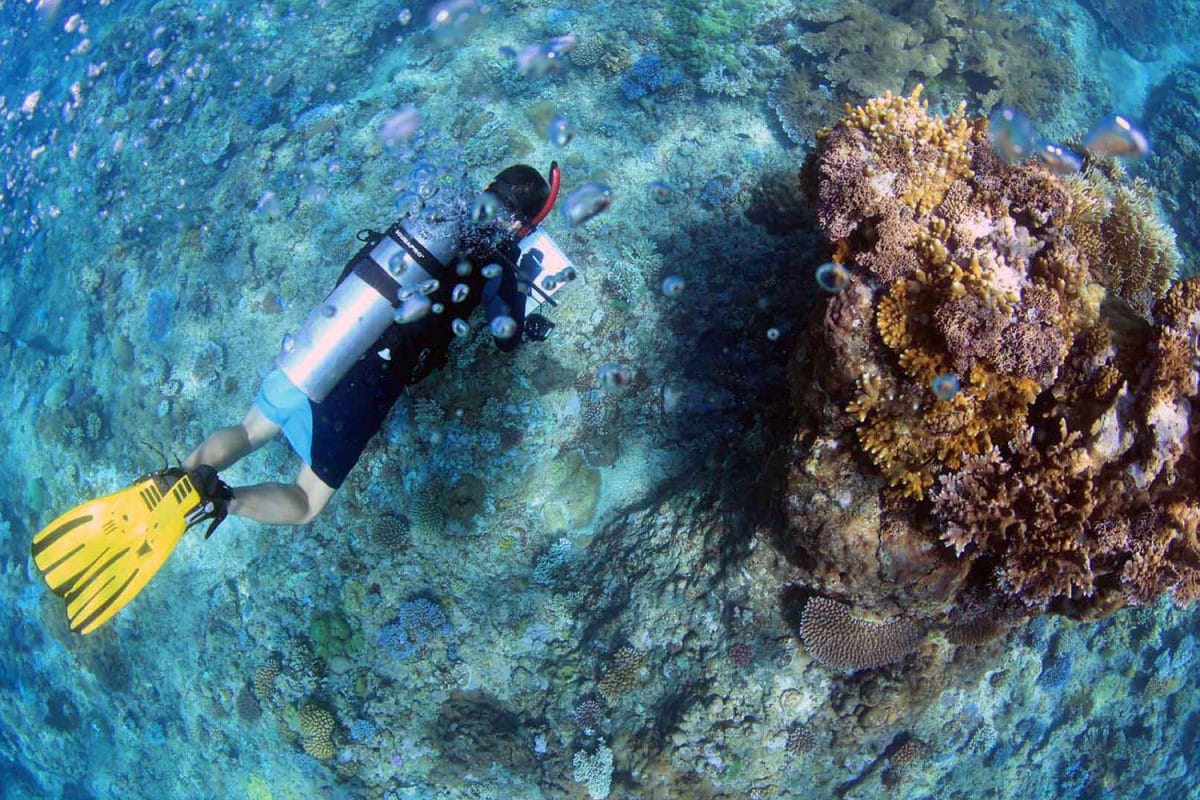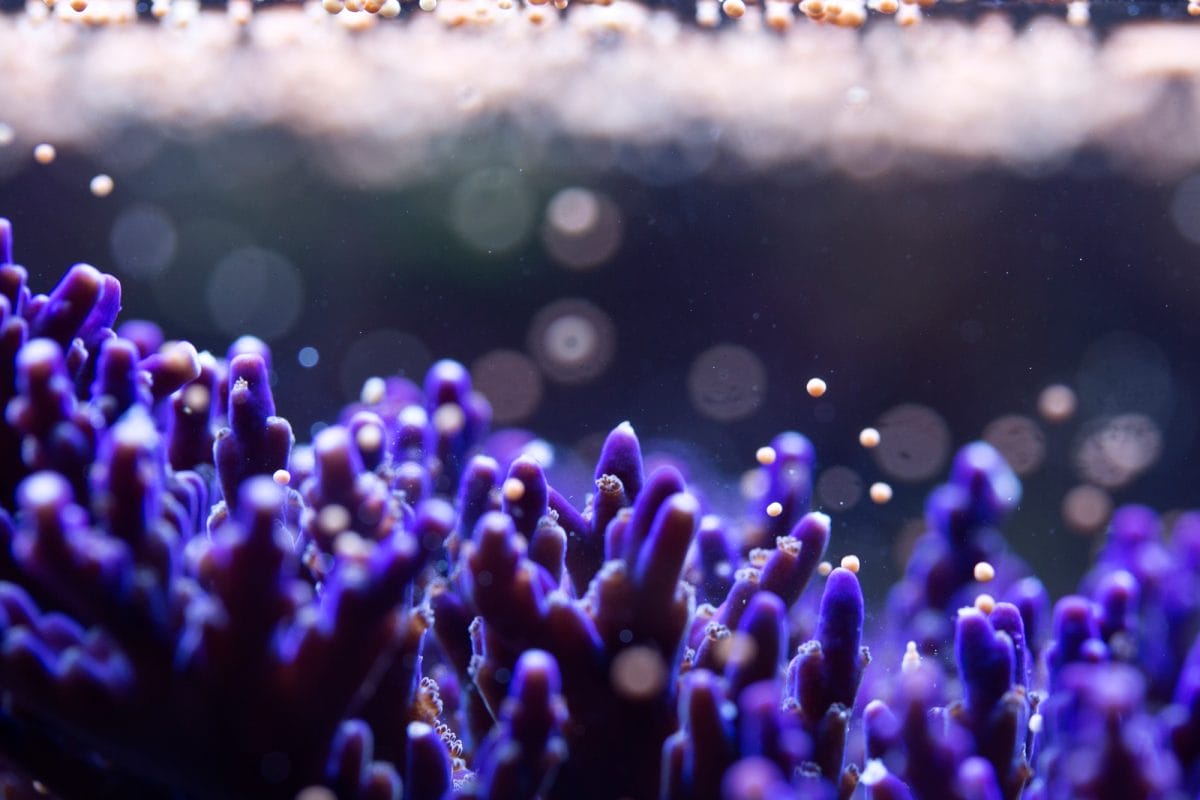‘Coral reefs are incredibly diverse habitats. One square metre of coral reef contains as many different types of animals (genera) as a whole hectare of Amazon rainforest.
They also support millions of people through food security, coastal protection and income through tourism.
But coral reefs are under threat. Human activities like pollution, overfishing and climate change mean we are losing coral reefs at an alarming rate.
How do we stop this?
The only way to understand how to recover the coral reefs is to understand coral reproduction. We need to look at the way reefs naturally rebuild themselves, so that we can help the process.
In their natural habitat, most corals reproduce over one or two nights a year during a mass spawning event. All coral in one area spawn at once and the event is dependent on the right climatic conditions, temperature and phases of the moon.
But once or twice a year is a very short time to study coral reproduction!
That’s where Project Coral comes in.
What is Project Coral?
Project Coral is a research project looking at coral reproduction led by the Horniman Museum and Gardens along with international partners. The main aims of Project Coral are:
- To understand reproduction.
Coral have occasionally spawned in aquariums, but it has always been accidental. By understanding what makes coral tick in the wild, we have created a research system which mimics their natural environment. This allowed us to produce the first planned spawning event in an aquarium in 2013. We are now developing protocols so that corals can be spawned at different times of the year. - To share our knowledge.
If the research community has access to the same set up as ours then we could potentially be looking at far more spawning events every year then we currently have. This would give us more chance to study how coral reproduction will be affected by future ocean conditions as a result of climate change. - To help restore the coral reefs.
Once we have more opportunity to study coral we, along with the international scientific community, will have more of a chance to produce baby coral which can be used to reseed dying reefs. - To supplement the hobby trade.
If we get to a point where we can produce baby coral, we might also be able to produce them for the aquarium trade, a practise that will provide alternative sustainable income for people that rely on coral reefs.’
Read more about Project Coral.
You can help save the coral reefs by supporting Project Coral





